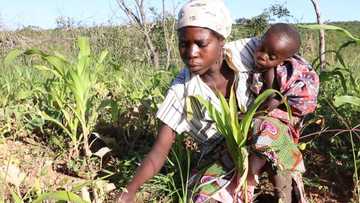COVID 19: Experts Highlight Critical Importance of Internet Connectivity During Pandemic
- The Covid-19 pandemic demonstrated the critical importance of internet connectivity, especially in the African continent
- Experts say community networks and internet exchange points are a cost-effective way to bridge the digital divide
- Internet Society is changing the narrative by pushing for accelerated action to further internet development throughout the African region
Kigali, Rwanda - Experts have highlighted the critical importance of internet connectivity in Africa, which was further strengthened during the COVID-19 pandemic.
This is as the Internet Society (ISOC) is celebrating its 30th anniversary as a global nonprofit advocating for an open, globally-connected internet.

Source: Facebook
The organisation is also calling for accelerated action to further Internet development throughout the African region at the World Telecommunication Development Conference (WTDC) 2022 taking place in Kigali, Rwanda.
Legit.ng gathered that the theme of the event is: “Connecting the unconnected to achieve sustainable development.”
PAY ATTENTION: Subscribe to Digital Talk newsletter to receive must-know business stories and succeed BIG!
Dawit Bekele, Regional Vice President of the Internet Society in Africa, lauded the progress made by stakeholders in expanding access throughout the continent while encouraging more collaborative efforts to bridge the digital divide.
His words:
“The COVID-19 pandemic demonstrated the value of internet connectivity which has been an essential lifeline for the continuity of business, healthcare, education, government, and other critical activities.
“We applaud the significant investments in the last decades to develop internet infrastructure, which has made the internet available to more people across the continent.
“However, the pandemic also highlights the digital divide that remains, particularly in rural, remote, and even urban areas around the world.”
The Internet Society has a long history of working with communities worldwide to fund, build and train people with the skills needed to run and maintain community networks.
In Africa, the Internet Society has helped build community networks in South Africa, Zimbabwe, the Democratic Republic of Congo, Uganda, Kenya, Nigeria, Namibia, Morocco, Senegal, and Ethiopia.
Sub-Saharan Africa has the highest growth in global internet penetration, increasing from less than 1% in 2000 to 30% today. Between 2019 and 2021 internet use in Africa jumped by 23%.
Despite this impressive growth, there is still a coverage gap of over 840 million people who don’t have access to reliable and affordable Internet access.
Nigeria specifically, is Africa’s largest ICT market, with 82% of the continent’s telecom subscribers and 29% of Internet usage, and is uniquely positioned to reap the benefits of the digital economy.
The country is also home to several high-growth digital companies that provide hopeful examples of the country’s digital potential, with ICTs contributing 12.5% to the GDP in 2020.
Nigeria’s progress in internet usage can be attributed to the government adopting policies that make it easier for an Internet ecosystem to thrive.

Read also
Climate change: Experts rally stakeholders as Nigeria, others celebrate World Environment Day
The government not only made it easier for different service providers to develop submarine cables, but they also adopted data protection regulations that spurred confidence and attracted international service providers.
NADDC to Partner UAE Firm on Solar Tractor Production in Nigeria
Meanwhile, as Nigeria makes progress in technological advancements, the Director-General of the National Automotive Design and Development, NADDC, Jelani Aliyu, has begun talks with an automobile firm for the production of solar-powered tractors in the country.
Legit.ng gathered that the partnership was signed on the sidelines of the Electric Vehicle Innovation Summit, EVIS, which took place from Monday, May 23 to Wednesday, May 25 in Abu Dhabi, United Arab Emirates.
Mr. Aliyu disclosed that the vehicles when manufactured locally would be made available to farmers at a subsidized rate.
Source: Legit.ng



